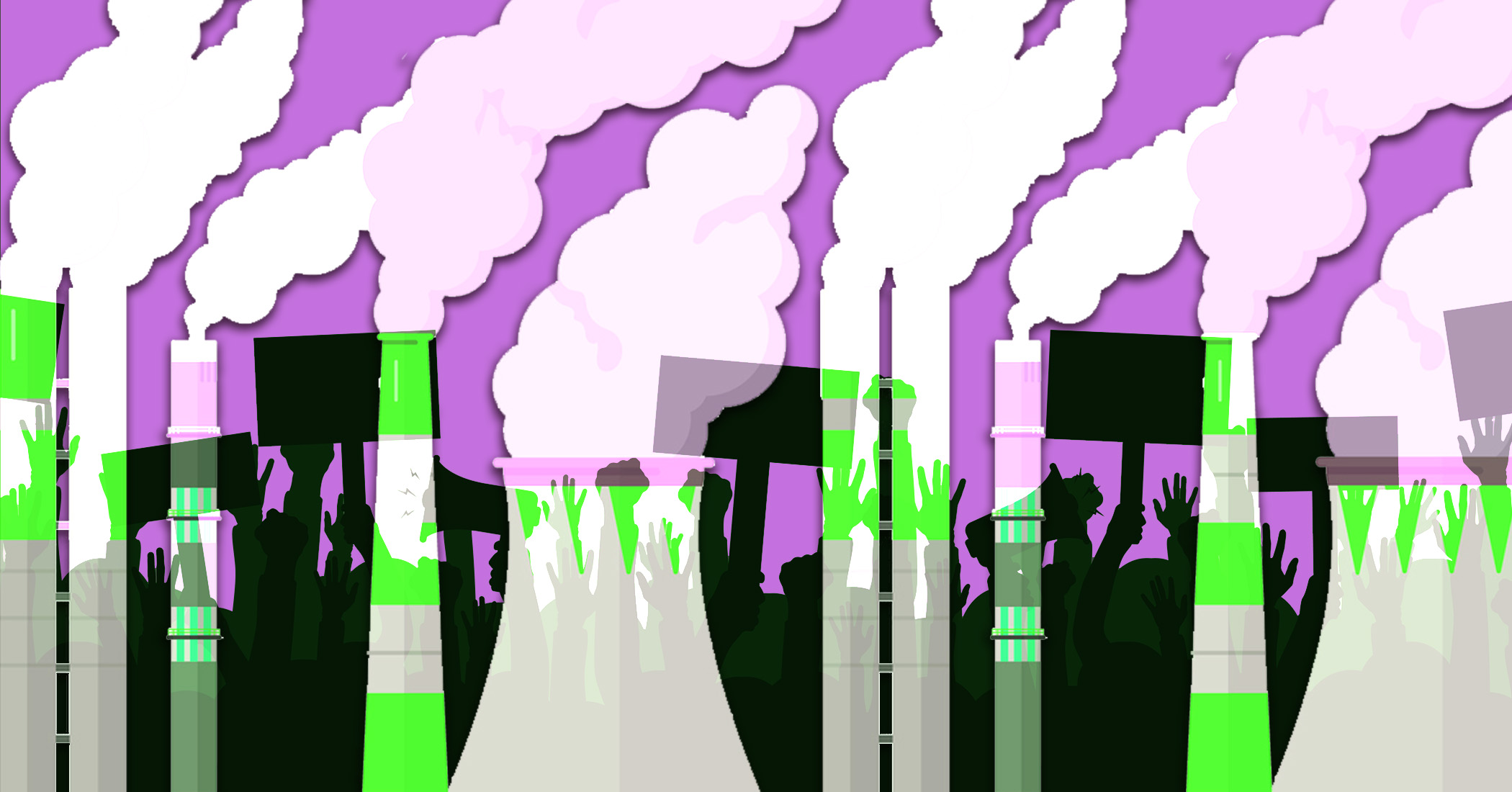Can unions save the environment?
How empowered employees can hold their companies environmentally accountable


A free daily email with the biggest news stories of the day – and the best features from TheWeek.com
You are now subscribed
Your newsletter sign-up was successful
Increasingly, Americans are scared of climate change. Most of us now acknowledge that it's happening, and almost 40 percent call it a "crisis," compared with less than 25 percent of us five years ago. But it's hard to look the issue in the face. Start picturing Miami and Bangladesh underwater, mass extinctions, refugees fleeing the rising tides and encroaching deserts, and you'll probably want to close this tab and find something more pleasant to read.
One reason this stuff is hard to think about is that we just don't know what we, as individuals, can do about the terrifying reality. Eating less meat and turning down the thermostat seem like pathetically inadequate measures — because they are. Our personal actions pale before the enormous carbon footprint of systems outside our control: the coal-burning power plants, forest-destroying industrial agriculture, and smoke-spewing trucks, in the U.S. and around the world.
What can any of us do about any of that?
The Week
Escape your echo chamber. Get the facts behind the news, plus analysis from multiple perspectives.

Sign up for The Week's Free Newsletters
From our morning news briefing to a weekly Good News Newsletter, get the best of The Week delivered directly to your inbox.
From our morning news briefing to a weekly Good News Newsletter, get the best of The Week delivered directly to your inbox.
For one answer, look to Amazon Employees for Climate Justice, a group of more than 1,000 rallying Amazon employees joining the youth-led Global Climate Strike Friday.
The worker-activists — who have a unique point of leverage because they're the key to making Amazon go — have written a short list of demands based on their knowledge of the business. They're calling for it to move to the use of electric vehicles, starting in communities most hurt by pollution, and transition to zero emissions by 2030. They're demanding that Amazon Web Service, the company's huge cloud computing arm, stop enabling faster oil and gas extraction through custom contracts with fossil fuel companies. And they're calling for the company to pull all campaign funds from climate-denying lobbyists and politicians.
The idea of workers supporting an environmental goal might come as a shock because, for decades, we've seen "jobs" pitted against "the environment" in political debates. But that narrative — auto worker, coal miner, or pipeline construction worker vs. the tree-hugging liberal — only took hold in the 1980s and '90s, largely due to a successful industry effort to make enemies of these groups.
In reality, as labor historian Erick Loomis recently explained at The Washington Post, earlier in the 20th century, timber unions and environmentalists had often been allies. Starting in 1938, the International Woodworkers of America pushed for sustainable forestry practices, arguing that this would allow logging work to continue far into the future. The union's work helped to produce the Wilderness Act of 1964, a key piece of wilderness preservation legislation.
A free daily email with the biggest news stories of the day – and the best features from TheWeek.com
And it wasn't just timber workers who tied the needs of workers to the environment. The United Auto Workers was one of the key players opposing water and air pollution in the 1950s and '60s. In 1967, Olga M. Madar, the UAW's vice president, testified before a congressional subcommittee in favor of tighter controls on vehicle air pollution, arguing that auto workers were "first and foremost American citizens and consumers" who had "to breathe the same air and drink and bathe in the same water" as anyone else.
Three years later, UAW President Walter Reuther brought that same message to the first Earth Day:
The labor movement is about that problem we face tomorrow morning. Damn right! But to make that the sole purpose of the labor movement is to miss the main target. I mean, what good is a dollar an hour more in wages if your neighborhood is burning down? What good is another week's vacation if the lake you used to go to is polluted and you can't swim in it and the kids can't play in it? What good is another hundred dollars in pension if the world goes up in atomic smoke? [Walter Reuther]
Today, unions are diminished in size and power, but the dynamic between workers and employers is much the same. Corporations are institutionally — and, arguably, legally — bound to put their shareholders' financial interests first. Workers, on the other hand, are complex humans who want a decent paycheck AND healthy communities AND a non-hellish world for their grandkids.
Unions are ideally placed to lead these kinds of pushes because their whole point is to let workers combine forces for a common goal. For example, the Blue-Green Alliance — a coalition of environmental groups and some of the nation's biggest unions including the Service Employees International Union, the Communication Workers of America, the American Federation of Teachers, and the United Steelworkers — is calling for net zero emissions in the country by 2050, combined with growing unions and getting more people to work on projects like reforestation, a green energy grid, and energy-efficient buildings.
But, as the Amazon walkout shows, new kinds of organizing can also help workers push their employers on the issues they are about (and, ideally, lead to formal unionization too).
So, if you're feeling despair at your ability to address climate change as one person, that's understandable. But look around. Maybe you have coworkers who feel the same way. Think about how the company you work for may be implicated in climate change, and how it might be able to be part of the solution. Then, maybe, see about organizing a workplace action of your own.
Want more essential commentary and analysis like this delivered straight to your inbox? Sign up for The Week's "Today's best articles" newsletter here.
Livia Gershon writes about work, money, gender, and history for the Guardian, the Boston Globe, Longreads, and JSTOR Daily, among other places. She lives in Nashua, New Hampshire.
